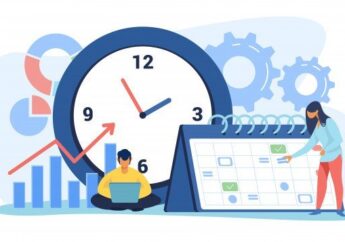How to Choose the Right Database Backend for Your Mobile App?
by Abdul Aziz Mondal Technology Published on: 05 January 2021 Last Updated on: 08 November 2024

One fundamental question that you ask yourself when you start mobile app development is the choice of backend database. It is, however, worthy to note that all apps vary and require a unique approach. Choosing the appropriate backend database is about comprehending the data and what will get solved.
Below are some questions to inquire when discussing your backend database requirements with your trusted developers:
Structure:
What kind of data do you intend to store and, what formats will the data be retrieved?
Size:
How much data will you require to store and retrieve
Speed:
How efficiently must this data be shown or stored? Is it written-heavy or read-heavy?
Let us discuss the options of the Database Backend so we can understand how they work
Database selection
Use database modeling to understand what database would be ideal. Your mobile app developer can take you through this exercise.
SQL(Relational)
Relational databases ensure efficient storage of data. It also guarantees no redundancy of data and data consistency in the center. SQL is ideal is suitable for querying data and analyzing information. It is common and underwent proper tests as it was one of the first database backend technology ever built. However, with applications using significant amounts of data, relational databases do not always work well and, a new way of storing data got created.
NoSQL (Document Object graph)
The NoSQL came out of the need to handle large amounts of data and the need to scale. In NoSQL, the data does not get stored in a table format but a document., graph, or object format. One major perk of not using tables is that it makes it convenient to extend and change data since you are not bound to any specific structures. It also makes it easy to add new features and lessen development time.
- Document
For this, it’s most practical to think of a scanned document, and each part of it is a value. For instance, the header is a value, the footer, etc. These contents get indexed for fast retrieval.
- Object
Data is no longer stored in a table but within the object. With this, it’s uncomplicated to update all users instantly. A single update updates all views.
- Graphs
Graphs offer a much friendlier way to store data. Backend database stores data on graph structures and makes the use of nodes and edges to store and present the data.
Backend
There are numerous backend databases that you could choose from. The critical questions here are the skillset and timings. If you want efficiency in the backend database, Firebase can be a great solution. If you need full control but still require a cloud solution, AWS might be the best.
Conclusion
The discussion on the database backend continues to be significant. And one that will continue throughout your app’s life. It is one that requires flexibility. Ensure to settle for a well-established and reputable company to work with.
Also, ensure that you have the appropriate resources and tools with an understanding of the issue you are trying to solve. Get to first understand the app user, their problems, and ultimately find the best solution.
Read Also:



































































































